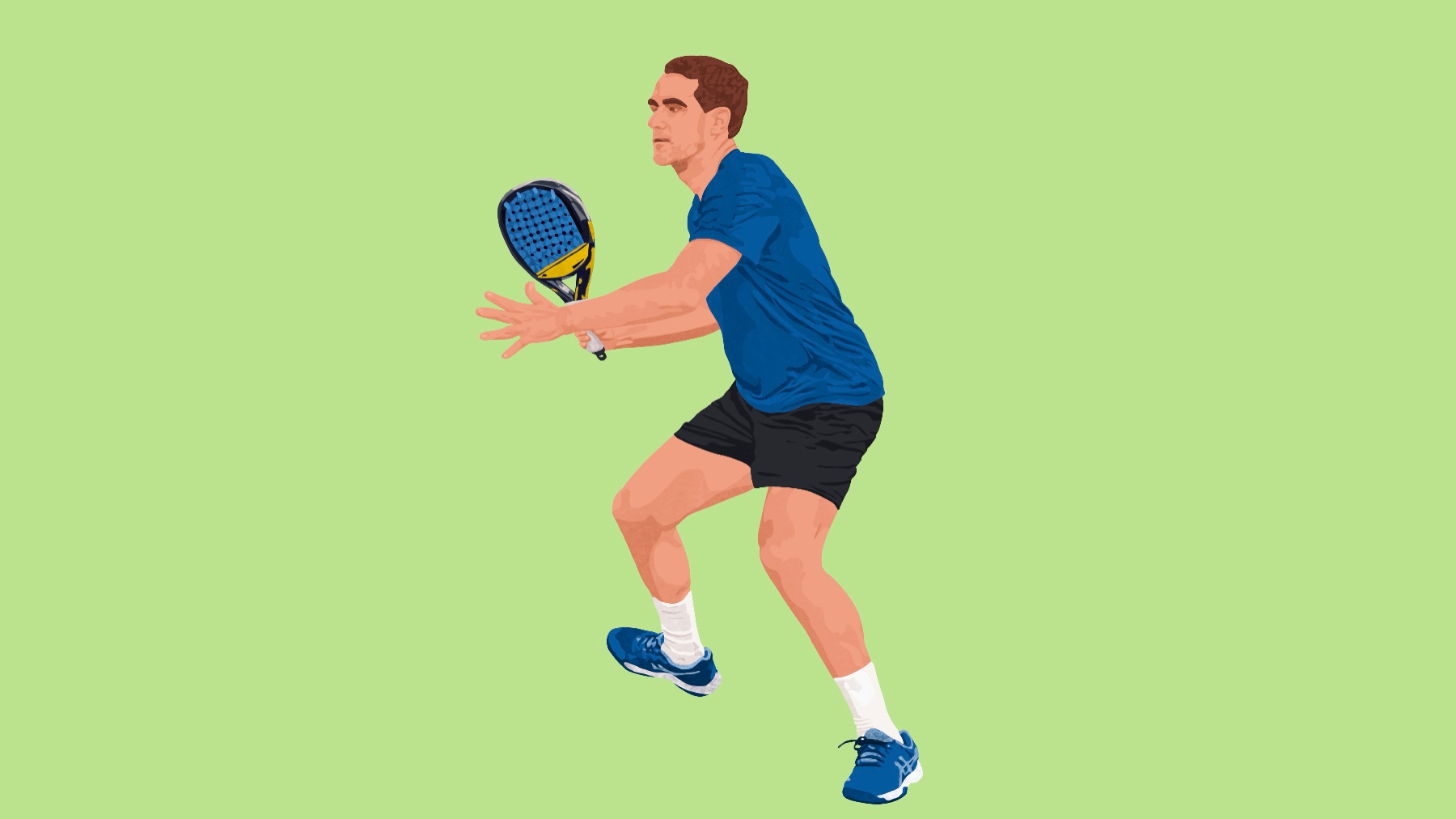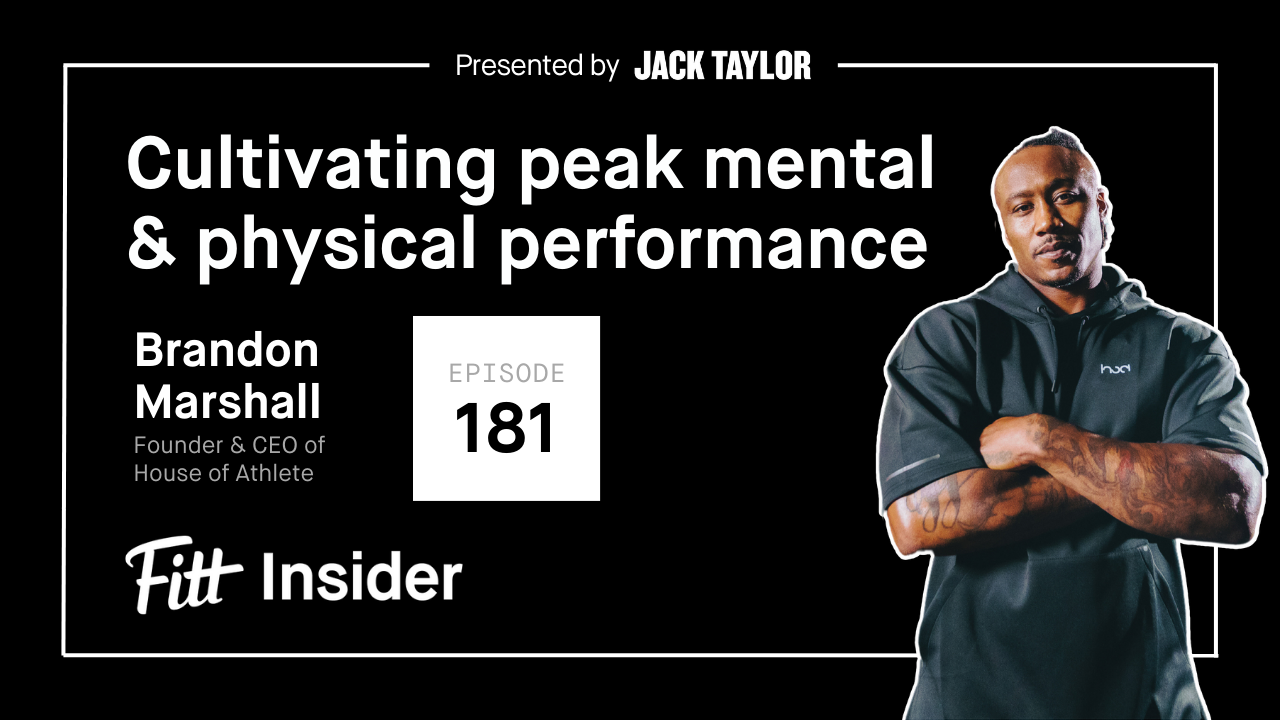Issue No. 228: Game On
 Illustration: Courtney Powell
Illustration: Courtney Powell
As the pickleball craze continues, padel wants in on the action.
Game On
Already popular worldwide, padel is poised to take the States by storm.
Like pickleball, the racket sport of padel was invented in the 1960s. A mashup of tennis and squash, players use a special paddle and ball in a small, enclosed court to compete, usually in doubles format.
- As of late 2022, padel counted 25M global players in 90 countries.
- Europe has seen a 159% increase in padel courts built between 2016–2021.
- An estimated €1B will be invested in padel court construction across European between 2022–2025.
From its origin in Mexico, padel quickly took hold in Spain — where it currently boasts 5M players and 11.5K courts. As the sport catches on, Italy, Sweden, and Belgium are proving to be key growth markets.
Still untapped, the US is fertile ground for padel’s continued rise.
Join the Club
Padel Haus, NYC’s “first and only” padel club, just added $7.5M in new funding.
After debuting its 16K-square-foot Brooklyn club last summer, the company plans to open three additional locations across the Northeast in the next two years.
Vying to become North America’s leading padel provider, Padel Haus leans into athletics and wellness to create a lifestyle-focused social club complete with indoor courts, training programs, a juice bar, and more.
Speaking about padel’s potential, founder and CEO Santiago Gomez said, “The sport is entering a new chapter and gaining awareness across the country.”
Scaling up, the US padel market is expected to grow from 200 to 30K courts and over 8M players by 2030.
Making a Racket
Spurred by the pandemic, a global recreation boom put padel and pickleball on similar growth trajectories.
In the US, gyms and real estate developers are building 130 pickleball courts per month to meet demand from an estimated 36.5M players.
Now, from professional leagues to infrastructure, padel is ramping up too:
- Court supplier EE Padel launched EEP Capital to invest in padel-centric businesses, including Padel Haus.
- The Pro Padel League, North America’s first professional padel league, officially launched last summer.
- The New York Yankees investment arm acquired a minority stake in A1 Padel, an international tournament, with plans to grow in the US.
Play on. Not choosing sides, more developments—like Swing Racquet + Paddle’s $70M complex in Raleigh, Miami’s Ultra Club, and the LA Galaxy’s new public park—are including both pickleball and padel courts.
Buy in. Both pickleball and padel benefit from smaller playing surfaces than tennis, meaning clubs can pack more courts in less space. But, while pickle can be played on almost any hard-top surface with an inexpensive DIY setup, padel’s sport-specific court costs upward of $25K each.
Go big. Olympic hopefuls, both sports are vying for IOC approval by the 2032 Games in Brisbane. Having already gained recognized sport status, padel’s global reach gives it an advantage over pickleball in the quest for gold.
Early days. As padel finds its footing in the US, it’s not Olympics or bust. Bullish on the sport’s future, US Padel Association president Marcos Del Pilar believes success is inevitable:
“The growth of padel globally is a completely unstoppable phenomenon… In the United States, I think we are close to that ‘tipping point.’”
Looking ahead: In a battle for the same players, pickleball and padel are bound to clash. While pickleball will likely remain ahead in the states, the global focus on casual recreation and competition is a win for everyone.
🎙 On the Podcast

House of Athlete founder & CEO Brandon Marshall explains how his 13-year NFL career inspired a fresh take on high performance.
We also cover: the five pillars of HOA programming, prioritizing mental health, and building a category-defining brand.
Listen to today’s episode here
📉 lululemon “pivots away” from MIRROR
Market watch: The activewear brand recently reported its Q4 and full-year 2022 earnings, beating analyst expectations.
- Revenue increased 30% to $2.8B.
- Operating income climbed 30% to $1.8B.
- Fiscal ’23 revenue is projected to surpass $9.3B.
Looking closer. While strong sales stole the show, the company’s connected fitness bet might be a bust.
In its earnings release, lululemon noted a $442.7M post-tax impairment charge related to MIRROR as hardware sales continued to underperform.
Having written down its $500M acquisition, lululemon CFO Meghan Frank said the smart screen is on its way out:
“We are pivoting away from the hardware-centric business that we acquired to also focus on a more efficient app-based model.”
Going forward, Frank said MIRROR will be a “very small portion” of revenue and an equally small part of the company’s five-year plan.
But… lululemon CEO Calvin McDonald was quick to point out that the company isn’t eliminating MIRROR’s hardware. Instead, they’re taking a device-agnostic, app-based approach à la Nike.
Punchline: In pursuing a sweat-centric membership, lululemon had the right idea but the wrong execution — burning $500M to chase the pandemic-era connected fitness gold rush. Now, distancing itself from hardware, the company hopes hosting workouts from premium fitness brands and lulu ambassadors will fuel engagement.
😮💨 WHOOP launches stress tracking, breathwork protocols
Wearables are zeroing in on stress.
What’s new: WHOOP’s latest launch includes a stress-tracking feature and breathwork protocols developed with Stanford neurobiologist Dr. Andrew Huberman.
It’s personal. The company’s wrist-worn strap measures real-time heart rate variability (HRV) and resting heart rate metrics to deliver a personalized stress score.
If that number rises, users are instantly notified and referred to Huberman Labs-validated interventions to increase alertness and boost relaxation.
Stress test. With 76% of adults reporting stress-related symptoms, wearable brands are taking preventative measures.
- Happy Ring’s mood monitor prescribes journaling
- NOWATCH delivers a real-time “state of being” report
- Apollo Neuro uses sound waves to promote stress resilience
Soon, stress tracking could be the new step counting.
Be on the lookout. On the Fitt Insider Podcast, WHOOP CEO Will Ahmed teased a forthcoming feature for quantifying muscular strain. Bringing its 2021 acquisition of PUSH to life, strength training may be the next upgrade to drop.
Takeaway: Rolling out new features to keep an already loyal memberbase paying, WHOOP’s latest partnership is sure to resonate with high-performers seeking evidence-based strategies to excel.
📰 News & Notes
- Ritual enters Target. [Re-read: DTC Goes Retail]
- Liteboxer rebrands, levels up VR strength training.
- lululemon and Madhappy collab on “inspired” running gear.
- Digital health funding trends up in Q1, but challenges remain.
- Uber’s healthcare arm expands same-day prescription delivery.
- Exos explores readiness as the future metric of healthy workplaces.
- Startup Q&A: BreakAway Data’s Dave Anderson on direct-to-athlete data.
- Equipment maker Eleiko bulks up Life Time’s strength training experience.
- F45 hires GNC vet Tom Dowd for CEO, Mark Wahlberg as chief brand officer.
- Fitt Jobs: Discover your next big career move in the health & fitness industry.
💰 Money Moves
- Padel Haus, a padel social club concept based in Brooklyn, raised $7.5M in a Series A round and will expand in the Northeast.
- Canadian women’s hormonal health platform Eli Health raised C$5M ($3.7M) in a funding round.
- Stretching studio franchise Stretch Zone received an undisclosed investment from Princeton Equity Group.
- SoundMind, a music therapy platform, closed a $2.25M seed round.
More from Fitt Insider: Music as Medicine - UK-based FitFlop, maker of walking-focused wellness footwear, raised $30M in new funding.
- Omius, makers of a smart cooling headband for endurance athletes, secured $986K in a seed round.
More from Fitt Insider: Functional Apparel Takes Hold - Ingenio, a wellness marketplace company, acquired Simple Habit, a meditation app, for an undisclosed amount and will rebrand it to Sleep Reset.
- Wellth, a chronic disease management platform focused on behavioral lifestyle change, raised $20M in an oversubscribed Series B round.
- Sensate, makers of a therapeutic device for stress management, closed $3.2M in a seed round led by Incisive Ventures.
- Global investment firm EQT Life Sciences closed €260M for its fund dedicated to solutions for dementia.
- Employee health benefits platform Zorro landed $11.5M in a seed round co-led by Pitango and 10D.
- Babylon Micro-Farms, makers of vertical farm systems for consumers, secured $8M in a Series A round led by Venture South.
Today’s newsletter was brought to you by Anthony Vennare, Joe Vennare, and Ryan Deer.